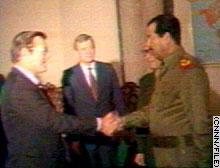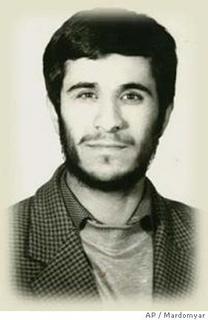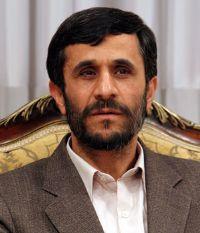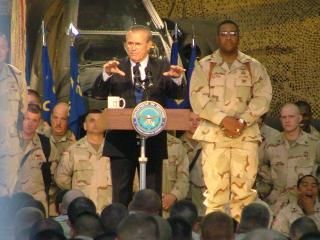Bush Fun

At georgewbushsingers.com, a group of crooners and musicians have decided to convert the aural blunders of the American President into a series of incredibly funny tunes. Click on The Album to hear samples.
For more music go to atmo.se, search for "Bush and Blair" and see a rather moving video of two friends serenading each other, or watch Bush singing a cover version of This Land at jibjab.com
World debt and global warming may be troubling many of us, but over at bushorchimp.com, they have a more pressing concern: is Mr Bush really a chimpanzee? The evidence appears compelling.
Finally, actofme.co.uk uses a selection of Bush speeches to create a scriptwriter allowing you cut and paste the US president's speeches to create all-new rude ones.
















